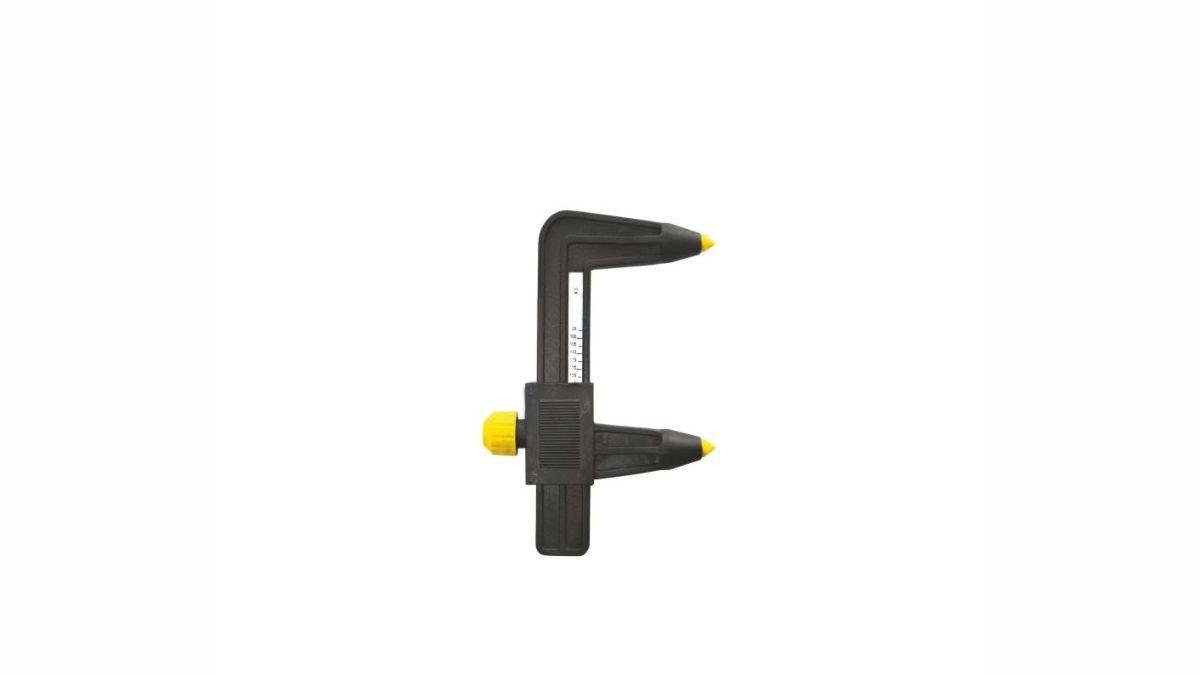Accurate Pitch Circle Diameter (PCD) measurement is critical in various industries, especially in automotive, manufacturing, and mechanical engineering.
The right tools ensure precision, reduce errors, and improve efficiency. This article explores the top 7 tools for accurate PCD measurement, providing insights into their features and applications.
1. PCD Measuring Gauge
The PCD measuring gauge is a specialized tool designed explicitly for measuring the pitch circle diameter of bolt holes. It is widely used due to its simplicity and accuracy.
The tool consists of adjustable arms with measuring points that align with the bolt holes.
Advantages:
- Easy to use and portable.
- Provides precise measurements for various PCD sizes.
- Suitable for automotive wheel hub measurements.
Applications: Commonly used in workshops and garages to measure PCDs on wheels, brake discs, and other circular components.
2. Vernier Caliper
A vernier caliper is a versatile measuring tool that can also be used for PCD measurements, especially in situations where the PCD gauge is unavailable.
By measuring the distance between adjacent holes and applying the appropriate formula, one can determine the PCD.
Advantages:
- Multi-purpose tool with high precision.
- Cost-effective and widely available.
Applications: Ideal for small-scale operations or when measuring multiple dimensions in a single setup.
3. CMM (Coordinate Measuring Machine)
Coordinate Measuring Machines are advanced tools that provide highly accurate PCD measurements.
A CMM uses a probe to determine the exact positions of bolt holes and calculates the PCD automatically.
Advantages:
- Exceptionally precise measurements.
- Can measure complex geometries beyond PCD.
- Automation reduces human error.
Applications: Used in high-precision industries like aerospace and automotive manufacturing.
4. PCD Ruler
A PCD ruler is a simple yet effective tool for measuring the pitch circle diameter. It consists of a flat strip with marked increments and holes or slots to fit over the bolt holes.
Advantages:
- Lightweight and portable.
- Easy to use for quick measurements.
Applications: Ideal for fieldwork and on-the-go measurements in workshops and assembly lines.
5. Dial Caliper
Dial calipers, similar to vernier calipers, are another tool for PCD measurement. The difference lies in their display mechanism—a dial caliper features a dial gauge for easier reading.
Advantages:
- High accuracy with an intuitive display.
- Suitable for detailed measurements.
Applications: Commonly used in mechanical workshops for precise measurements of bolt holes and flanges.
6. Laser Measurement Systems
Laser-based measurement systems represent the cutting edge in precision measurement technology. These systems use laser beams to scan the bolt-hole pattern and calculate the PCD.
Advantages:
- Extremely accurate and non-contact measurement.
- Fast and efficient for large-scale operations.
Applications: Frequently used in high-tech industries requiring meticulous accuracy, such as electronics and precision engineering.
7. 3D Scanners
3D scanning technology is becoming increasingly popular for PCD measurement. By creating a 3D model of the component, these scanners can determine the PCD and other geometric features with unmatched precision.
Advantages:
- Provides detailed geometric data.
- Non-contact measurement minimizes wear and tear on tools.
Applications: Ideal for reverse engineering, quality control, and prototype development.
Factors to Consider When Choosing a Tool
When selecting a tool for PCD measurement, consider the following factors:
- Accuracy Requirements: Choose a tool that meets the precision standards of your application.
- Budget: Advanced tools like CMMs and laser systems are costly but offer unmatched accuracy.
- Portability: For on-site measurements, portable tools like PCD gauges and rulers are ideal.
- Complexity of Measurement: For intricate geometries, opt for tools like 3D scanners or CMMs.
Conclusion
Accurate PCD measurement is essential for ensuring compatibility and functionality in mechanical components.
Whether you need the simplicity of a PCD gauge or the precision of a laser measurement system, the right tool can make all the difference.
Evaluate your requirements and choose from these top tools to achieve accurate, reliable results in your projects.
